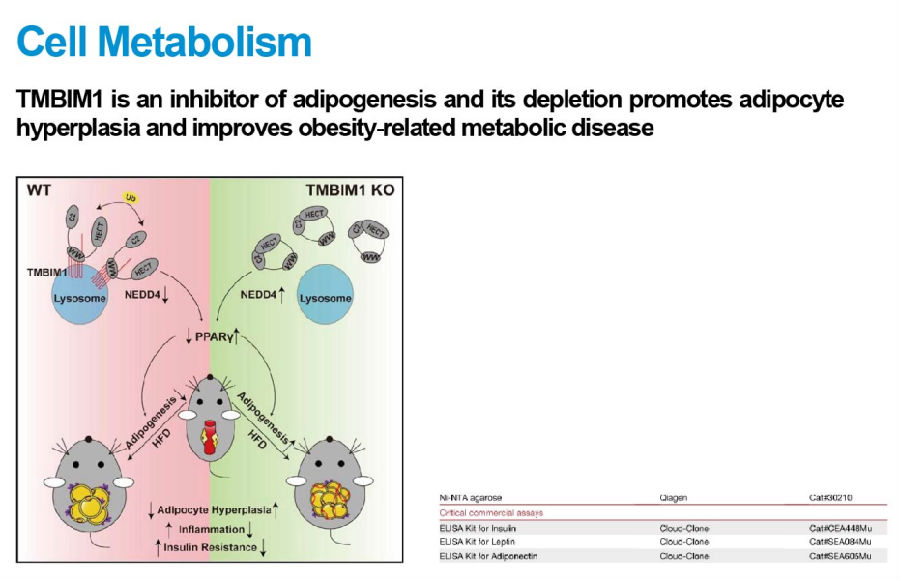Congratulations to professor Hongliang Li for publishing a paper on Cell Metabolism
On June 8, 2021, professor Hongliang Li from Zhongnan Hospital of Wuhan University published a paper titled TMBIM1 is an inhibitor of adipogenesis and its depletion promotes adipocyte hyperplasia and improves obesity-related metabolic disease on Cell Metabolism.
The ELISA kit [ELISA Kit for Insulin (INS), CEA448Mu; ELISA Kit for Leptin (LEP), SEA084Mu; ELISA Kit for Adiponectin (ADPN), SEA605Mu] of Cloud-Clone brand was chosed to determine the concentation of INS, LEP and ADPN in this article, we are so proud for supporting the reaserchers.

Obesity is characterized by the excessive accumulation of the white adipose tissue (WAT), but healthy expansion of WAT via adipocyte hyperplasia can offset the negative metabolic effects of obesity. Thus, identification of novel adipogenesis regulators that promote hyperplasia may lead to effective therapies for obesity-induced metabolic disorders. Using transcriptomic approaches, we identified transmembrane BAX inhibitor motif-containing 1 (TMBIM1) as an inhibitor of adipogenesis. Gain or loss of function of TMBIM1 in preadipocytes inhibited or promoted adipogenesis, respectively. In vivo, in response to caloric excess, adipocyte precursor (AP)-specific Tmbim1 knockout (KO) mice displayed WAT hyperplasia and improved systemic metabolic health, while overexpression of Tmbim1 in transgenic mice showed the opposite effects. Moreover, mature adipocyte-specific Tmbim1 KO did not affect WAT cellularity or nutrient homeostasis. Mechanistically, TMBIM1 binds to and promotes the autoubiquitination and degradation of NEDD4, which is an E3 ligase that stabilizes PPARγ. Our data show that TMBIM1 is a potent repressor of adipogenesis and a potential therapeutic target for obesity-related metabolic disease.
